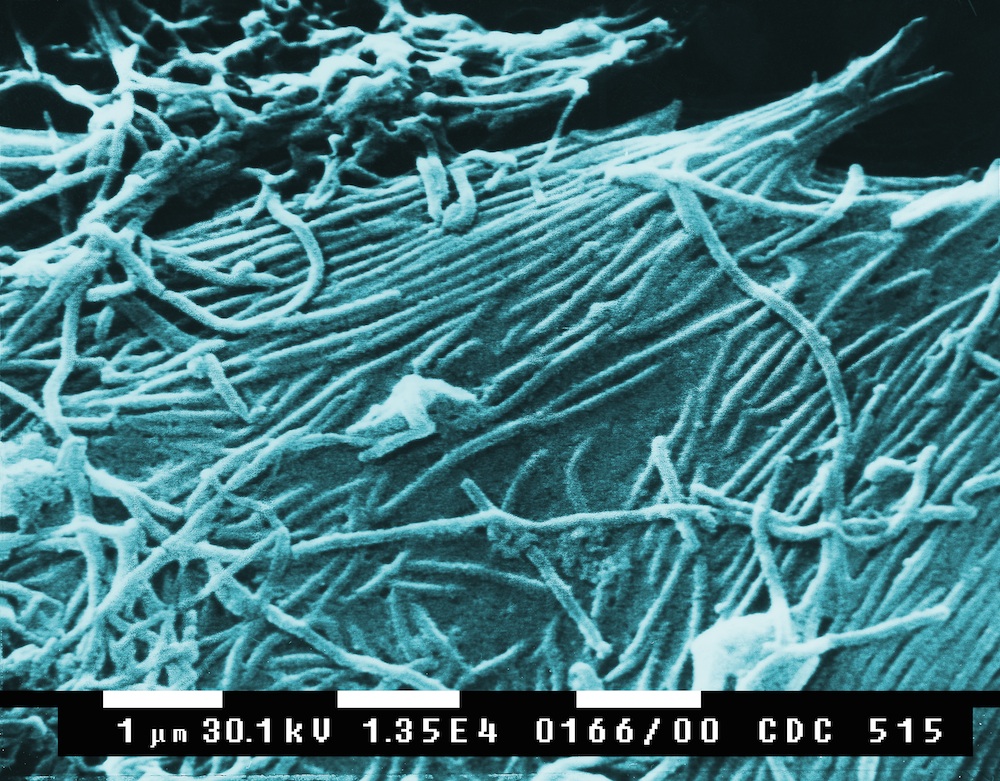2nd Person in US Tests Positive for Ebola

Get the world’s most fascinating discoveries delivered straight to your inbox.
You are now subscribed
Your newsletter sign-up was successful
Want to add more newsletters?

Delivered Daily
Daily Newsletter
Sign up for the latest discoveries, groundbreaking research and fascinating breakthroughs that impact you and the wider world direct to your inbox.

Once a week
Life's Little Mysteries
Feed your curiosity with an exclusive mystery every week, solved with science and delivered direct to your inbox before it's seen anywhere else.

Once a week
How It Works
Sign up to our free science & technology newsletter for your weekly fix of fascinating articles, quick quizzes, amazing images, and more

Delivered daily
Space.com Newsletter
Breaking space news, the latest updates on rocket launches, skywatching events and more!

Once a month
Watch This Space
Sign up to our monthly entertainment newsletter to keep up with all our coverage of the latest sci-fi and space movies, tv shows, games and books.

Once a week
Night Sky This Week
Discover this week's must-see night sky events, moon phases, and stunning astrophotos. Sign up for our skywatching newsletter and explore the universe with us!
Join the club
Get full access to premium articles, exclusive features and a growing list of member rewards.
A second person in Dallas has tested positive for Ebola after coming in contact with a man from Liberia who was infected with the deadly virus, officials said today.
This second patient is a health care worker at Texas Health Presbyterian Hospital, and helped care for Thomas Eric Duncan, the first person to be diagnosed with Ebola in the United States, according to the Texas Department of State Health Services.
The health care worker came down with a fever Friday night, and a preliminary test was positive for Ebola, officials said. The Centers for Disease Control and Prevention will perform a second test to confirm the results. This testing is underway and will be completed later today, Dr. Tom Frieden, director of the CDC, said in a news conference today. [Ebola Virus: 5 Things You Should Know]
The second patient had extensive contact with Duncan during his care, Frieden said. Health officials don't know how the health care worker became infected, but "at some point there was a breach in protocol, and that breach in protecol resulted in this infection," Frieden said. There will now be a complete investigation to understand how this infection might have occured, and prevent it from happening in the future, he said.
"It is certainly very concerning," Frieden said, referring to the possible new case. "It tells us that there is a need to enhance training and protocols to make sure the protocols are followed," he said. Frieden noted that even a single slip can result in infection.
Some high-risk situations for contracting the Ebola virus are when health care workers perform kidney dialysis and respiratory intubation of infected patients, and when health care workers take off personal protective equipment, Frieden said.
The CDC had previously said it was monitoring about 48 people who had contact with Duncan before he was isolated. The second Ebola case was not one of these original 48 people — she was monitoring herself, and sought care when she developed symptoms, Frieden said. Now health officials will formally monitor people who had contact with Duncan during his care, and will identify people who had contact with the second case after she started to show symptoms, Frieden said. So far, it appears that only one person had contact with the second case while she may have been infectious, he said.
Get the world’s most fascinating discoveries delivered straight to your inbox.
"We knew a second case could be a reality, and we've been preparing for this possibility," Dr. David Lakey, commissioner of the Texas Department of State Health Services, said in a statement. "We are broadening our team in Dallas and working with extreme diligence to prevent further spread."
Ebola is spread through contact with the bodily fluids, such as blood or secretions, of an infected individual, or by contact with contaminated objects. People with Ebola are only contagious after they start showing symptoms.
Follow Rachael Rettner @RachaelRettner. Follow Live Science @livescience, Facebook & Google+. Original article on Live Science.

Rachael is a Live Science contributor, and was a former channel editor and senior writer for Live Science between 2010 and 2022. She has a master's degree in journalism from New York University's Science, Health and Environmental Reporting Program. She also holds a B.S. in molecular biology and an M.S. in biology from the University of California, San Diego. Her work has appeared in Scienceline, The Washington Post and Scientific American.
 Live Science Plus
Live Science Plus










